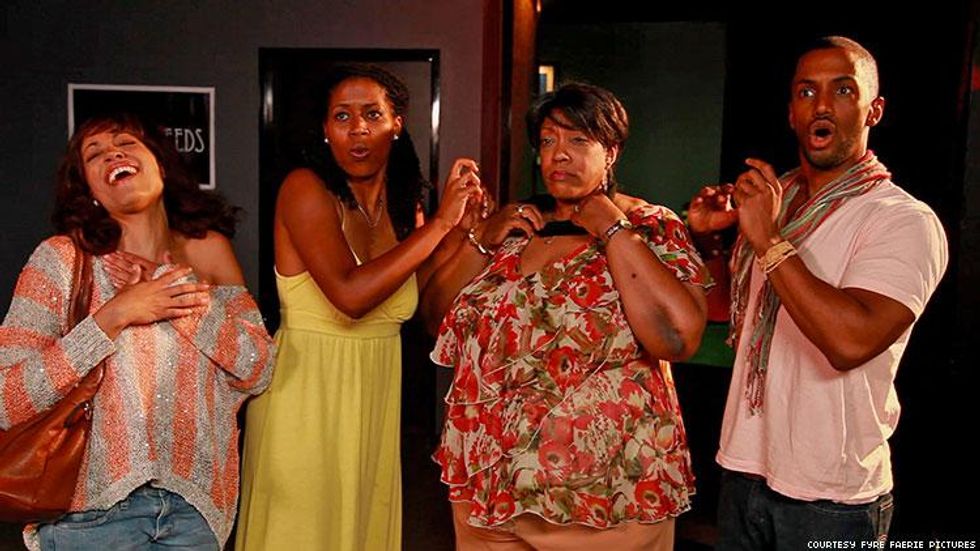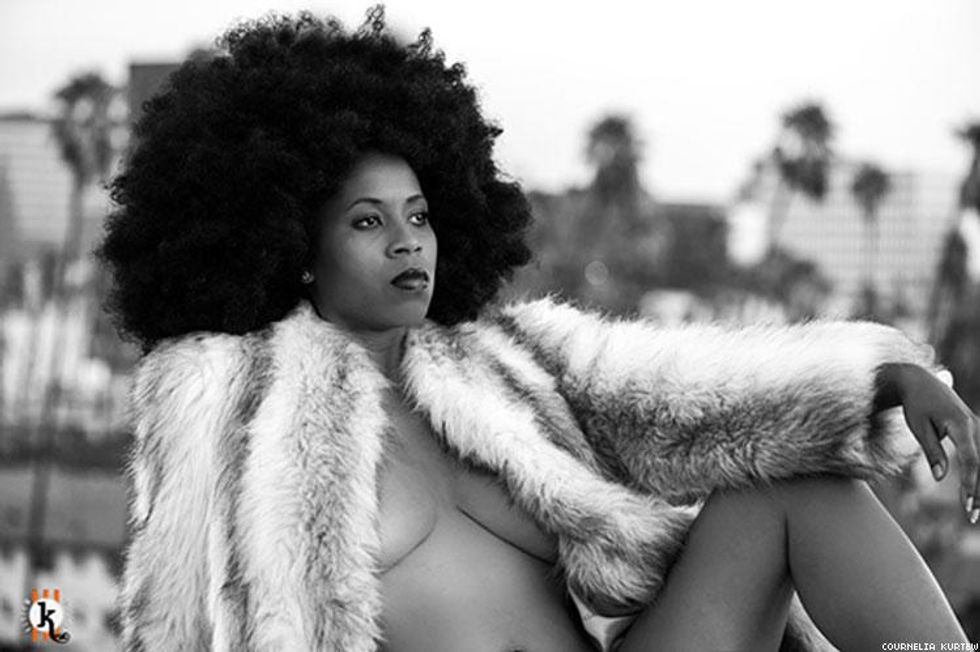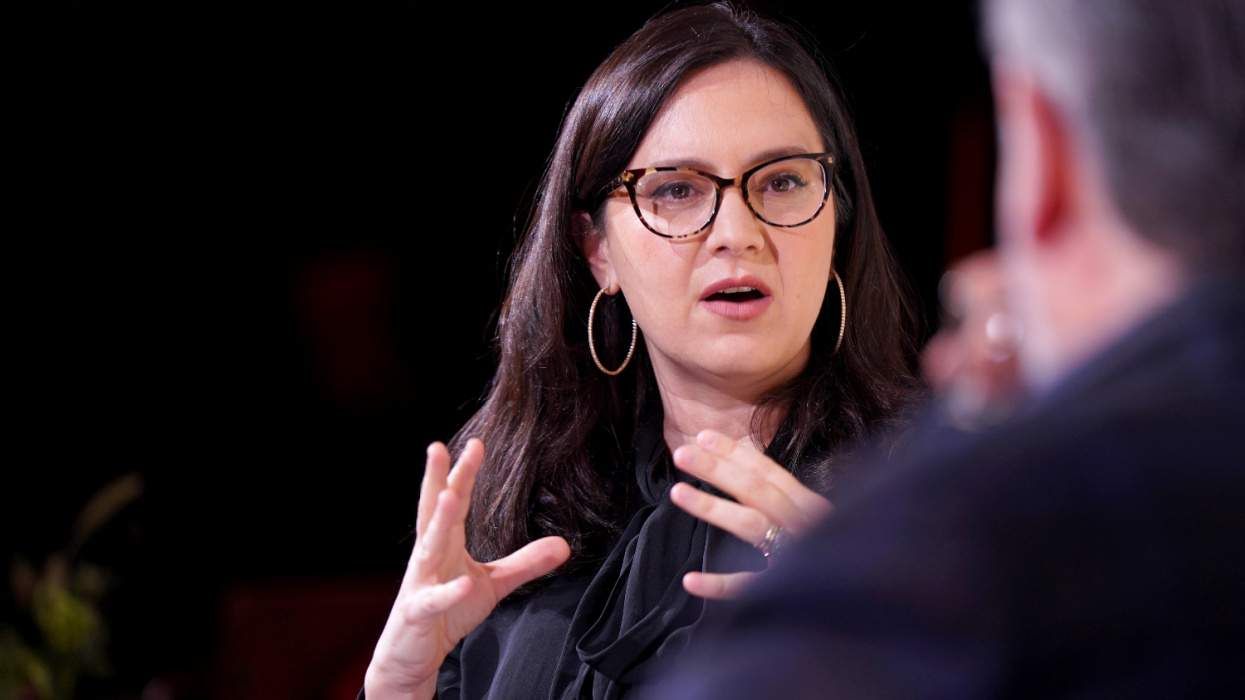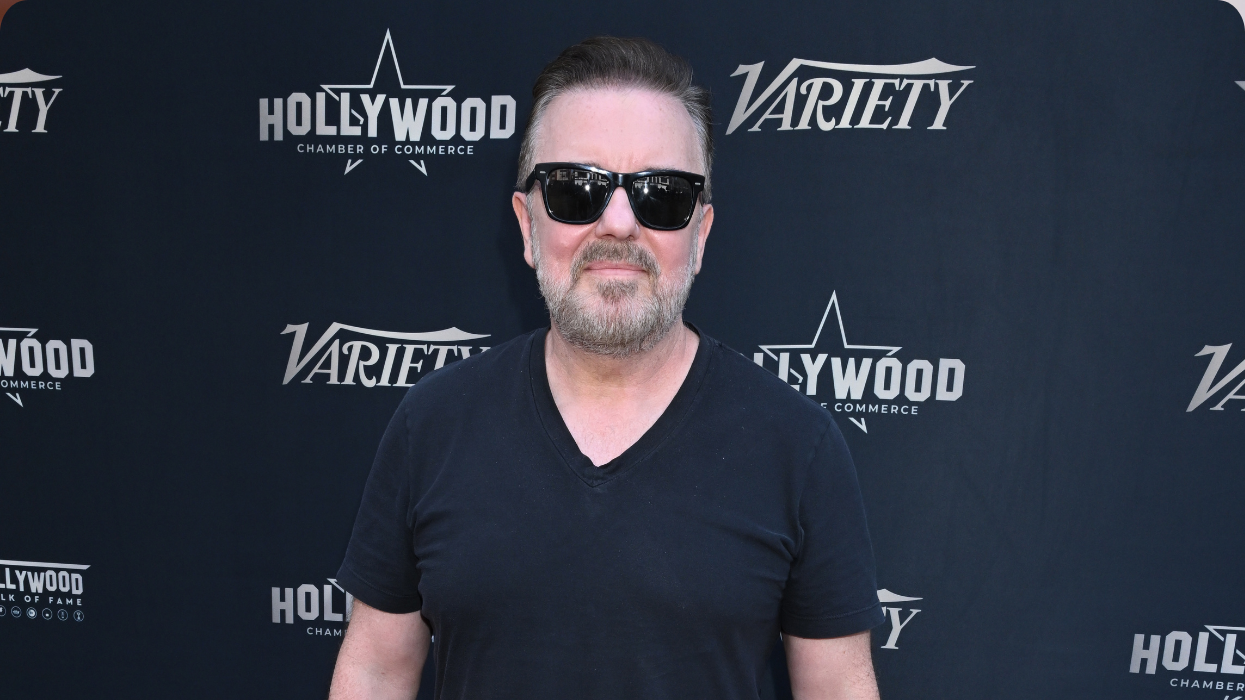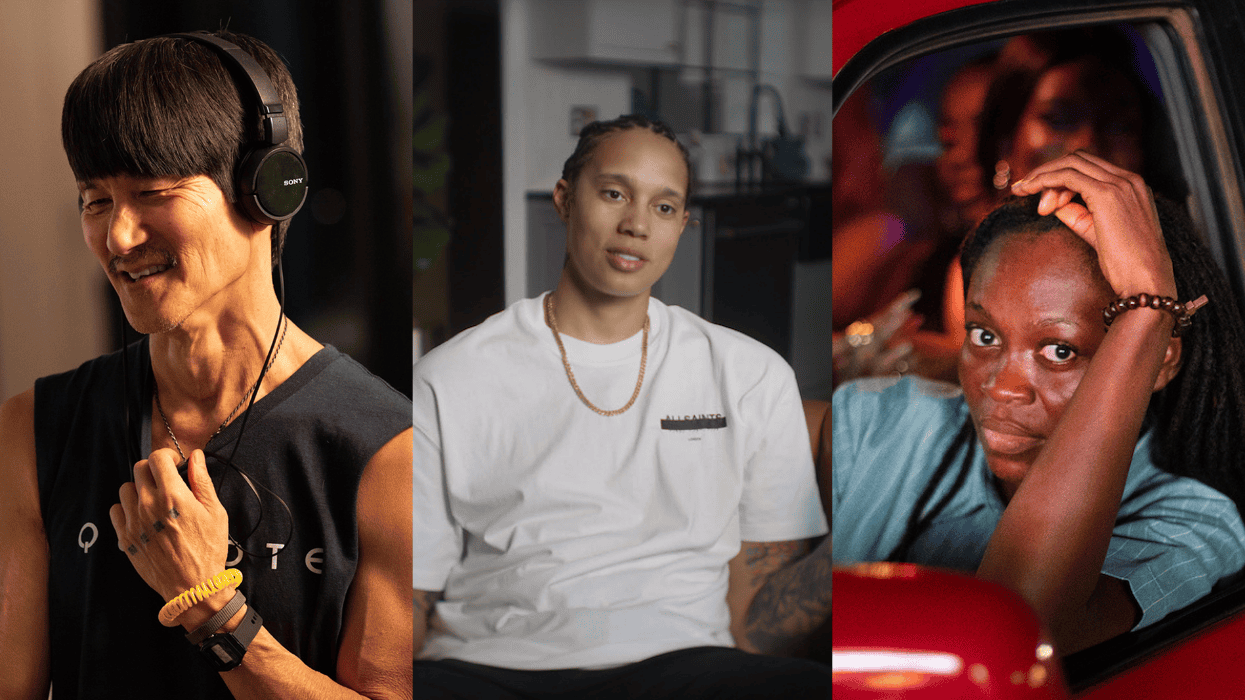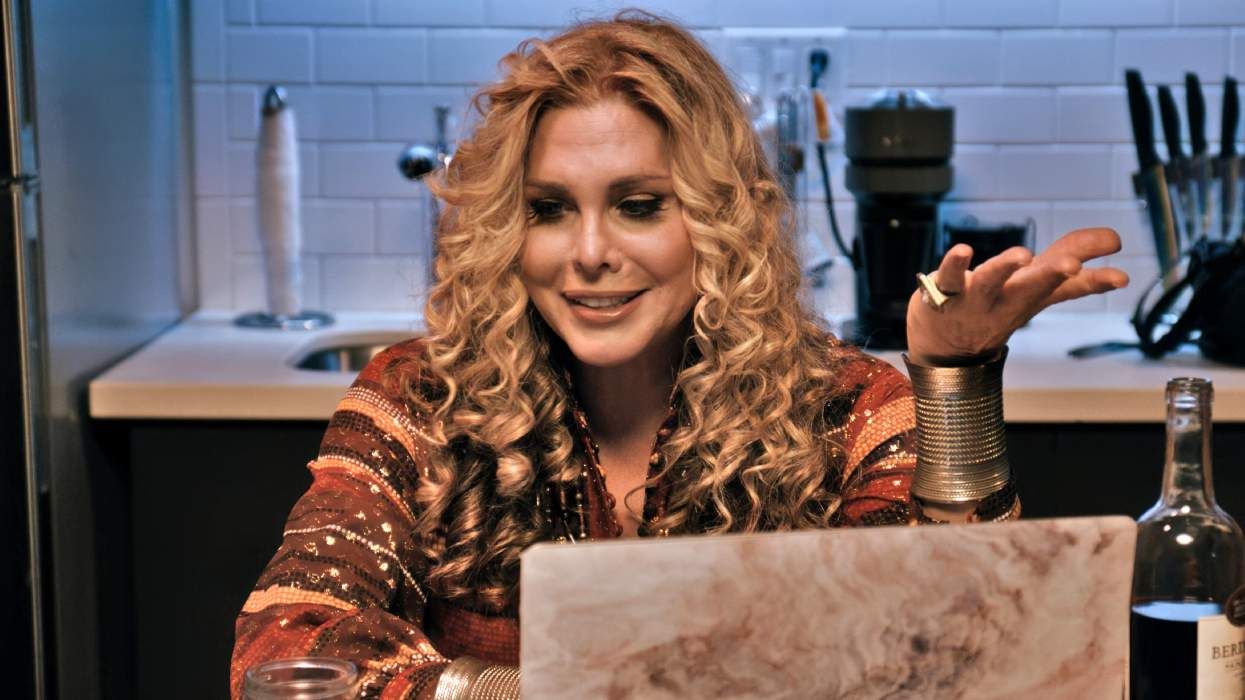As a child, Dalila Ali Rajah knew exactly what she wanted to do. "I always knew I wanted to be an actress, singer, and a dancer," says Ali Rajah, who ended up becoming all those things, and more (she added writer and producer to the list along the way).
She recalls going to a restaurant as a child "when I was probably around 7 or 8. I went to the restroom on my own, and on the way back I ran into a member of the restaurant band setting up... He asked what I wanted to be when I grew up. I told him, and he asked if I knew any songs. I knew 'Fame,' the theme song from the film.... my mom is starting to look around for me... [and] I'm on stage singing."
The young creator produced her first play when she was just 9 years old, but Ali Rajah says, she took it very seriously. "I wrote a play based on Ms. Pac-Man and sold tickets for 10 cents to our neighbors. I directed it, with me and my cousins as the actors. I had stage hands, set design, everything," she remembers with a laugh. "I insisted that we have concessions to sell -- I needed a cash register, and to make popcorn. My dad, who was an entrepreneur, took me to get both and we turned the living room into a small theater."
Her parents were hugely supportive, even if they had hoped her artistic fever dream would pass and she'd become a doctor or lawyer. "They would let me do things like produce that play, perform every Thanksgiving for the family, take acting classes, etcetera -- but this was not their dream for me. I would say, 'I want to be an actress, singer, and a dancer.' They would say, 'Actress, singer, dancer, doctor!'"
In college, when she officially changed her major from pre-med and biochemistry to theater, Ali Rajah says "my father threatened to pull me out of school. But when he had some time to think, he supported me. He'd always wanted to be an engineer, but his family didn't support him, and it broke his heart." Going on to get an MFA degree (in acting) gained Ali Rajah her education-oriented family's respect.
The Sacramento, Calif.-raised Ali Rajah says she's "a Cali girl with a Southern sensibility," because she spent many summers and holidays in South Carolina. "My mother, father, and all of their siblings spent their childhoods in the South, so Southern culture was a big part of my upbringing."
Figuring out her sexuality didn't come quite as easily as her laser-focused interest in becoming an entertainer. "I didn't realize I was bi until I was older. I was always a different kind of thinker and felt very lonely growing up -- the kind of kid that no one sat with at lunch. I experienced feeling different on the outside but didn't have an awareness that my sexuality was a part of it." Now, as an out queer woman of color in the entertainment industry, Ali Rajah is kicking ass -- including literally, in a sexy, raucous '70s blaxploitation-themed trailer promoting Dan Curry's book King-Fu Lesbian. The video was such a hit on YouTube, there's talk of optioning it into an episodic series. But that's just a fun side-note in this self-professed "witchy, airy, Faerie" type's busy life.
The outspoken activist also created Cherry Bomb!, a talk show that discusses "sex, love, and navigating the world of women who love women," which ran five seasons on Canada's OUTtv (2008-2013). Then in 2014, the lesbian short Secrets & Toys -- that Ali Rajah wrote, executive produced, and starred in -- won numerous awards on the film festival circuit. The versatile performer also recently toured in the Tony Award-winning stage production of The Trip to Bountiful, costarring Cicely Tyson, Blair Underwood, and Vanessa Williams. She currently appears in the short film Getting Started (now touring the festival circuit and rapidly racking up awards).
Being out hasn't seemed to hurt her career, as the multitalented actress has also found success navigating more mainstream productions. On the small screen, she has appeared on NCIS, How to Get Away With Murder, Grey's Anatomy, New Girl, Scandal, and American Crime Story: The People v. O.J. Simpson. She was also awarded the Best Actress Award by ARFF (America's Rainbow Film Festival) for her riveting performance in the 2016 feature drama Quiet as Kept.
"There has been an increase in inclusion, but we have a long way to go for people of color, women, and queer people," says Ali Rajah of her experiences working in Hollywood today. "I'm grateful for the increase in awareness, but there is a lot of work to do. I think having more platforms and outlets for content has helped -- and that people realize content that includes us makes money."
She adds that the overall lack of out working actors of color doesn't help. "Twenty years ago, almost no actors were out. In the early 2000s, you had a few people and then it started to pick up -- but almost no actors of color. I feel like now way more people are out, but so few are people of color. I think in particular, men of color often feel like they need to stay closeted to work."
In 2008, debates around California's anti-gay marriage ballot initative, Prop 8, inspired Ali Rajah to get more involved in activism. The issue highlighted for her a disturbing disconnect between LGBTQ and African-American communities. She witnessed queer activists arguing that the black community was partially to blame for holding back progress of marriage equality, "But there were almost no black people in the room to talk about it, and of those of us that were there, many just didn't have the patience to explain the cultural nuances that contributed to some views in communities of color," says Ali Rajah. "Also, many queer black people have not felt welcomed in those activist environments in the past. Even now, the queer community is often segregated."
"I honestly think those points of intersection are where we need the bridges," she continues. "We are in a scary time. The systems that are supposed to check and balance the government are being manipulated in such a way that eventually they won't function. I feel that is happening partially... to limit the rights of those of us at the margins. It's terrifying. There are more of us 'others' than there are people who currently receive systemic privilege, but we aren't working together. We have to bridge that to truly create change."
To help promote that kind of bridge-building, Ali Rajah and her wife, East German-born visual artist Cornelia Kurtew, have created a multimedia project, PerspectiveAndPrivilege, to "shine a light on places where privilege, otherness, and oppression intersect, and the ways we can use them to empower and create change." The project includes portraits, experimental and documentary films, and a touring art installation.
Juggling so much "can be challenging," Ali Rajah admits. The spiritual soul -- who is also a tarot reader, life coach, and healer -- says her secrets to staying sane include meditation, her great support system (including the holy trinity of women in her life: her wife, mother, and daughter), rituals that help her "connect to magic around me," and "therapy when I need it."

